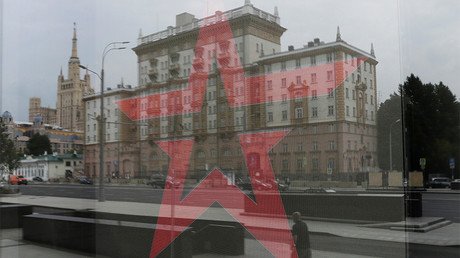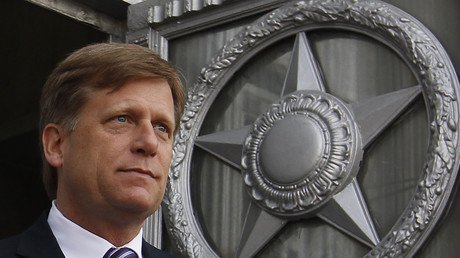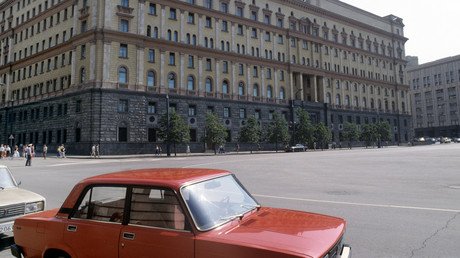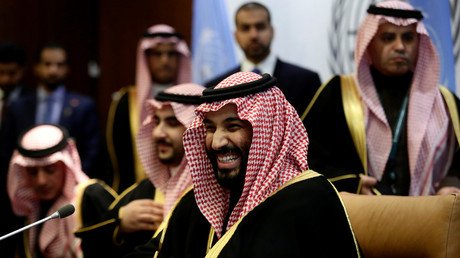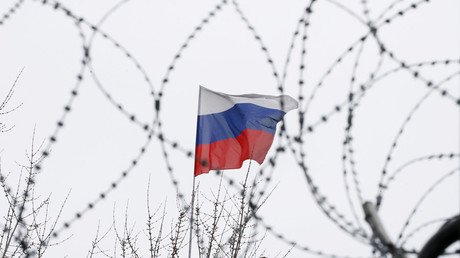Who is responsible for the new US-Russian Cold War? - by Stephen Cohen
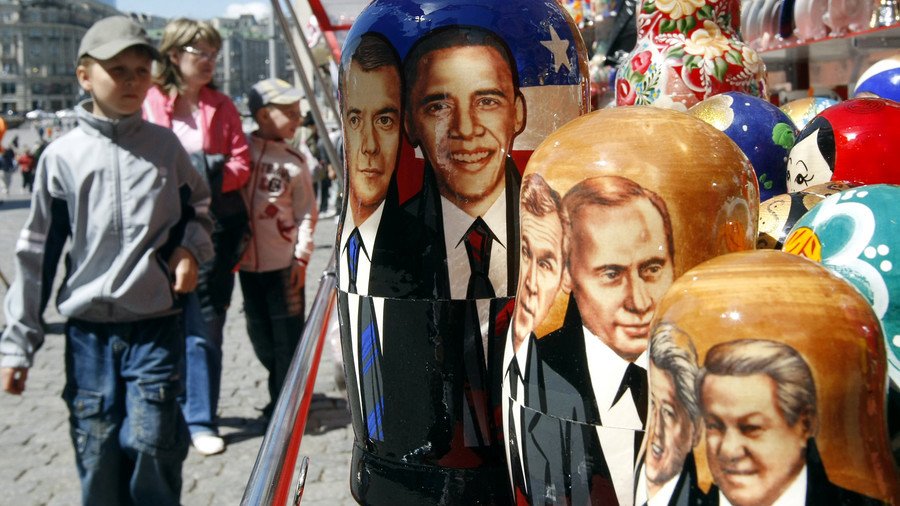
Prof. Stephen F. Cohen argues that unwise US policies since the 1990s have been responsible for the new Cold War. Former US ambassador to Moscow Michael McFaul argues that Russia’s leader since 2000, Putin, is to blame.
A discussion of the Stephen F. Cohen–Michael McFaul debate.
Stephen F. Cohen, professor emeritus of Russian studies and politics at NYU and Princeton, and John Batchelor continue their (usually) weekly discussions of the new US-Russian Cold War. (You can find previous installments of these conversations, now in their fifth year, at TheNation.com.)
On May 9, at a public event jointly sponsored by Columbia University’s Harriman Institute and NYU’s Jordan Center for Advanced Russian Studies, Cohen and McFaul—a Stanford University professor and previously President Obama’s top Russia adviser in the White House and then his ambassador to Moscow—debated a crucial historical but also urgent contemporary subject: “The New US-Russian Cold War—Who Is to Blame?” Cohen argues that unwise American policies since the 1990s have been largely responsible. McFaul, drawing on themes in his new book, From Cold War to Hot Peace, argues that Russia’s leader since 2000, Vladimir Putin, is to blame. (A video of the full debate can be seen here.)
Batchelor plays several statements by Cohen and McFaul at the event, which he and Cohen discuss. Among the main points made by Cohen are the following:
— The new Cold War has unfolded for more than twenty years without any substantive mainstream debate—not in elections, Congress, the media, think tanks, or universities. In a democracy, such debates are the only way to challenge and change official policy. As a result, Washington’s unwise policies toward Moscow have been guided by the same underlying assumptions and principles since the 1990s. This situation is dramatically unlike the preceding 40-year Cold War, when US policy was regularly debated both at high and grassroots levels from the 1960s through the 1980s. And this lack of public debate is one reason why the new Cold War is more dangerous than was its predecessor. Therefore, Cohen emphasizes, if this event sets a precedent, inspires more such debates between representatives of fundamentally opposing American views, as he and McFaul are, there will be no loser only winners in the making of subsequent US policy toward Russia.
— Cohen locates the origins of the new Cold War at the time when the preceding one was said to have ended. The three leaders who declared that the Cold War had ended in 1989–1990—Presidents Gorbachev, Reagan, and George H.W. Bush—publicly agreed it had been terminated through negotiations and “without any losers.” But in 1992, Bush changed both the timing and terms of that epochal event, dating it from the end of the Soviet Union in December 1991, two years later, and declaring: “America won the Cold War.” Thus arose the US triumphalism and sense of entitlement that has informed Washington’s policies toward post-Soviet Russia ever since.
— At the same time, in 1990, another major agreement was successfully negotiated and then violated by Washington. In return for Gorbachev’s agreement that a reunited Germany (the political epicenter of that Cold War) would be a NATO member, the Western powers, led by President Bush, pledged that NATO would not expand “one inch eastward.” Violating that pledge a few years later led to two primary causes of the new Cold War: today, NATO, the world’s most powerful military alliance, is encamped on Russia’s borders; and the Russian policy elite’s abiding belief, expressed not only by Putin, that Washington has repeatedly broken its promises to, even “deceived,” Moscow.
— In the 1990s, the Clinton Administration’s professed “strategic partnership and friendship” with Russia was in fact driven by rampant triumphalism. With Russia gravely weakened and in profound crisis following the end of the Soviet Union, Clinton pursued what Cohen terms “a winner-take-all” approach to Moscow and, behind the scenes, toward Russian President Boris Yeltsin himself. While the physically ailing and psychologically needy Yeltsin was being cajoled by Clinton on matters of Russia’s domestic and foreign policies, legions of American “advisers” encamped across the country to similarly “meddle” in that nation’s politics—drafting laws and textbooks, abetting politicians and parties favored by Washington, and directly participating in the rigging of Yeltsin’s 1996 reelection. Many Americans applauded as progress the oligarchic plundering of Russia’s richest assets, and some even enabled the transfer and laundering of that ill-gained wealth in the West. Then followed the onset of NATO expansion eastward and, in 1999, the US-led bombing of Russia’s traditional ally, Serbia, and NATO’s annexation of its Kosovo province, which the Putin leadership would later cite as precedent for its action in Crimea. All along, as Russia was afflicted by the worst ever peacetime economic depression, with some 75 percent of its people sinking into poverty and attendant social misery, Washington cheered the process as a “transition to democracy and capitalism.” It ended in 1999, with Russia in financial collapse and with Yeltsin’s resignation. The resulting backlash could have been, Cohen points out, very much worse for the United States than Vladimir Putin has been.
— Despite the disastrous US policies of the 1990s, the winner-take-all approach continued under President George W. Bush. Thus, following the 9/11 attack on America in 2001, the new and not yet unchallengeable Russian President Putin gave more support to the US war against the Taliban in Afghanistan than did any other country, including NATO members. Putin sought the real strategic partnership with Washington that Yeltsin had failed to achieve. Instead, he got in return from Bush further NATO expansion, now headed to Russia’s Baltic borders; expanded “democracy promotion”—“meddling,” to use “Russiagate” jargon—in Russia’s internal affairs; and, most detrimental to Russian (and international) security, unilateral US withdrawal from the Anti-Ballistic Missile Treaty, which now has resulted in missile defense installments on land and sea very close to Russia and, predictably, a new nuclear arms race.
— In 2008, following an official NATO statement that one day the former Soviet republics of Georgia and Ukraine would certainly become members of the alliance, a brief war between Russia and Georgia erupted. An official European investigation concluded that Georgia’s president had initiated the war. What is not known is whether he was advised to do so by his American patrons in the Bush Administration. Whatever the case, Georgia was the first US-Russian proxy war of the new Cold War. Others, in effect, soon followed—in Ukraine, then in Syria. More, or even worse, may be in the making.
— McFaul argues that Cohen’s thesis of an unending triumphalist, “winner-take-all” approach to post-Soviet Russia is wrong, as evidenced by President Obama’s “re-set” with Moscow under then President Dmitry Medvedev. It was, according to McFaul (himself a major participant), a “win-win” policy. Cohen disagrees, pointing out in detail that Moscow was offered, and received, very little, while the Obama Administration got what it most wanted: Russian sanctions on Iran and an expanded Russian supply route to US and NATO forces in Afghanistan. Moreover, it ended with another American broken promise. In return for its “partner” Medvedev not vetoing at the UN Security Council the US-led attack on Libya in 2011, Obama and his representatives, including Secretary of State Hillary Clinton, promised not to seek the removal of Libya’s leader, Muammar Gaddafi. In the event, he was tracked down and killed. Putin, then prime minister, remarked on “yet another American deception.” And any chance Medvedev had for a second term as president, as the Obama administration hoped and even lobbied for, was crushed by his own “re-set” partner in Washington.
— That is, McFaul and many others continue to insist that the new Cold War and its causes began with Putin’s return to the Russian presidency in 2012. But as Cohen’s historical presentation shows, this is not a viable empirical or analytical understanding of past or current developments.
— Has the outcome really been a new Cold War? When Cohen first warned of this danger in the early 2000s, adumbrating his concern even during the Clinton-Yelstin 1990s, it was widely said that a recapitulation of Cold War was impossible for several reasons, primarily because there was no longer any fundamental ideological conflict between the United States and Russia, as there had been between democratic capitalism and Soviet Communism. If nothing else, Cohen and McFaul agree there is now indeed an ideological clash between, it is said, the US-led West’s liberal democratic values and Putin’s conservative, even reactionary, ones. Cohen questions this simplistic characterization of Putin’s values, or ideology, but the issue was not directly joined and remains to be debated.
— A range of other disputed issues are discussed before the debate, and the Cohen-Batchelor discussion, ends with the issue of “Russiagate” allegations regarding “collusion” between President Trump and Putin. McFaul apparently regards the allegations as proven or nearly so. Cohen does not, and he worries that if Trump is faced with an existential nuclear confrontation with Russia, as President John F. Kennedy was during the 1962 Cuban Missile Crisis, these allegations will prevent Trump from avoiding nuclear war through negotiations with the Kremlin, as Kennedy did. McFaul did not comment on this, perhaps because the debate format did not provide him an opportunity to do so. What he thinks about it is unclear. But all of us, Cohen ends, should certainly, and urgently, think very carefully about this not improbable possibility.
Stephen F. Cohen is a professor emeritus of Russian studies and politics at New York University and Princeton University and a contributing editor of The Nation.
This article was originally published by The Nation.
The statements, views and opinions expressed in this column are solely those of the author and do not necessarily represent those of RT.
